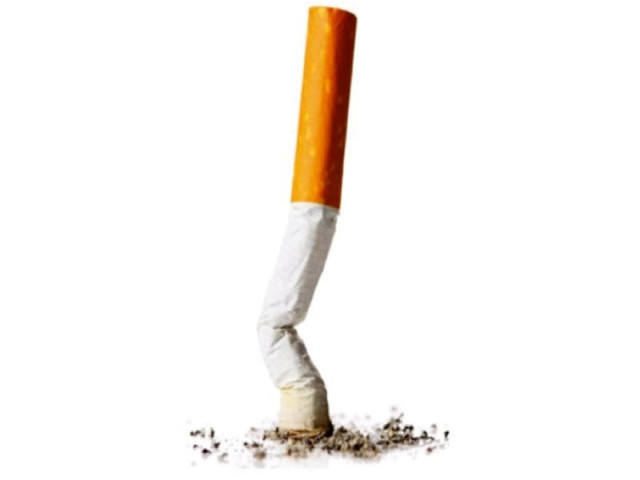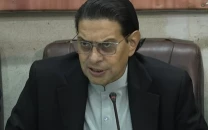World No Tobacco Day: Smoke-free Islamabad? Not anytime soon
CADD working on two-year plan to enforce anti-smoking law in capital.

CADD working on two-year plan to enforce anti-smoking law in capital.
A report on the implementation of anti-tobacco laws in the capital presents a gloomy picture of the progress made so far, while plans to control tobacco use remain on the drawing board.
At a press conference held to mark the World No Tobacco Day on Saturday, Capital Administration and Development Division (CADD) Project Director Dr Minhajusiraj said, “Since efforts in Pakistan remain primarily donor-funded, CADD is preparing a financial plan for a two-year project to ensure Islamabad becomes smoke-free in the near future.
We have sent a request to the Ministry of National Health Services, Regulation and Coordination to include anti-smoking medicines in its list of essential drugs, so that they are readily available in the market, he stated. “This would help decrease the consumption of tobacco products in the country.”
Dr Minhajusiraj announced the opening of the second Cessation Clinic at Pims for people who would like to quit tobacco use.
“CADD is developing a National Plan for Cancer Prevention and Control involving all stakeholders. It will establish the first comprehensive care cancer hospital of the country in Islamabad.”
Dr Minhajusiraj said, “The volatile law and order situation in the country is not conducive to a discussion on tobacco control laws, but tobacco use kills five times more Pakistanis than terrorism, target killings, road accidents, sectarian violence, honour killings and drone attacks”.
He shared the findings of the report for which data was gathered from 1,250 public places.
According to the report, in 74% of public places, “No Smoking” signs were absent, 71% of people were seen smoking in public places, 48% of people were not aware of the ban on smoking in public places, sale of tobacco products to minors stood at 73%, while 63% of cigarette packs had no warning. In 82% cases, cigarette outlets were situated within 50 metres of educational institutions.
The majority of public schools, hospitals and Parliament House are not smoke-free zones, he stated. “Parliamentarians and doctors smoke in their offices which is a clear violation of anti-tobacco laws enshrined in Prohibition of Smoking and Protection of Non-Smokers Health Ordinance, 2002, he stated.
“We sent requests to the Polyclinic Hospital and the Pakistan Institute of Medical Sciences (Pims) to declare their hospitals smoke-free. We received a positive response from Polyclinic Hospital but not from Pims.”
World Health Organisation (WHO) Tobacco Control Cell in-charge Dr Shehzad Alam said a nationwide survey conducted last year found that 15% children aged 13 to 15 are using tobacco in various forms.
These include 18% boys and 11.3 % girls. Some
10% of the children interviewed said they had been provided with free cigarette samples by tobacco companies, while 40% said they started smoking before the age of 10.
Published in The Express Tribune, June 1st, 2014.



















COMMENTS
Comments are moderated and generally will be posted if they are on-topic and not abusive.
For more information, please see our Comments FAQ